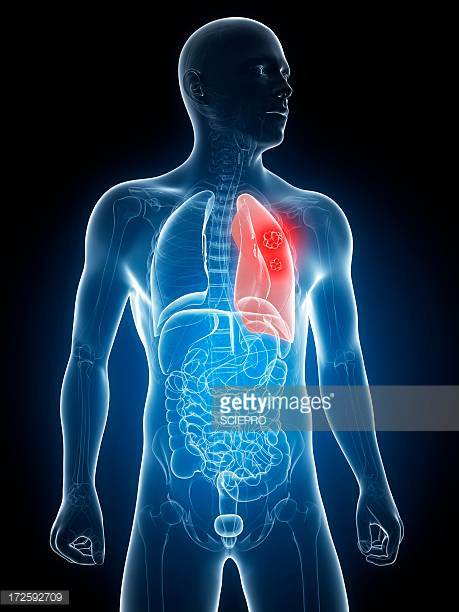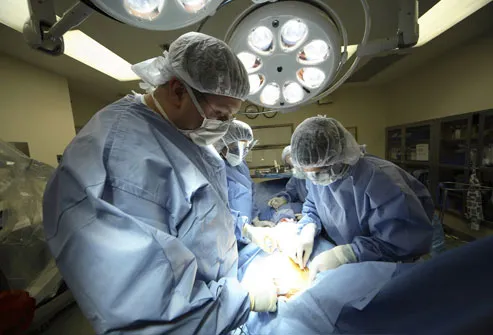
Diagnosed with Cancer? Your two greatest challenges are understanding cancer and understanding possible side effects from chemo and radiation. Knowledge is Power!
Learn about conventional, complementary, and integrative therapies.
Dealing with treatment side effects? Learn about evidence-based therapies to alleviate your symptoms.
Click the orange button to the right to learn more.
- You are here:
- Home »
- Blog »
- Lung Cancer »
- Stage II-IIIA Non Small Cell Lung Cancer? Buy Time with Mix of Therapies
Stage II-IIIA Non Small Cell Lung Cancer? Buy Time with Mix of Therapies

“The targeted therapy gefitinib appears more effective in preventing recurrence after lung cancer surgery than the standard of care, chemotherapy”
A lung cancer diagnosis of stage 2 or 3 is not about one procedure to cure or not cure the patient. My experience as a long-term survivor of an incurable cancer is that each patient must combine the most effective therapies of both conventional (FDA approved) and evidence-based non-conventional therapies to most effectively treat their cancer for the long-term.
Make no mistake. Lung cancer is an aggressive cancer. If you are staged at 2 or 3 then “the five-year survival for patients with stage II-IIIA NSCLC is only 40 percent. ” The study linked and excerpted below talks about a conventional therapy that can buy you time to undergo evidence-based, non-conventional therapies. Which in turn may buy you more time…

Surgery to remove as much of the lung cancer (debulk your tumor) as possible is the first step in managing your cancer.
However, chances are, your cancer will relapse. Many cancers do. My point is to anticipate this relapse and take the steps necessary to work with this possibility.
I have been “buying more time” from my “incurable cancer” since 1999. When my oncologist told me that there was nothing more that she could do for me in September of 1997, I decided to undergo a controversial non-conventional cancer therapy. I reached complete remission by early 1999.
Survivors of my cancer, multiple myeloma, always relapse. Therefore I consider the evidence-based, non-toxic therapies I do each day to be buying time until I relapse.
One day at a time…
Have you been diagnosed with lung cancer? What stage? What therapies have you undergone? Please scroll down the page, post a question or comment and I will reply to you ASAP.
Thank you,
David Emerson
- Cancer Survivor
- Cancer Coach
- Director PeopleBeatingCancer
Recommended Reading-
- Early Lung Cancer Therapies Reduce Cancer Deaths Significantly
- Early Lung Cancer, SBRT if Surgery is Not an Option
- The Cure for Lung Cancer May Be in Fish Oil
- Fish Oil Improves Response to Chemo, Improves OS for Lung Cancer Patients
targeted therapy can delay recurrence of intermediate-stage lung cancer
“The targeted therapy gefitinib appears more effective in preventing recurrence after lung cancer surgery than the standard of care, chemotherapy…
In a phase III clinical trial, patients with epidermal growth factor receptor (EGFR)-positive, stage II-IIIA non-small cell lung cancer (NSCLC) who received gefitinib (Irressa) went about 10 months longer without recurrence than patients who received chemotherapy…
Due to high chance of recurrence, the five-year survival for patients with stage II-IIIA NSCLC is only 40 percent. About 25 percent of all patients who are diagnosed with NSCLC are eligible to have surgery to remove the tumors with the hope of a cure. Among that group, about 30 percent or 140,000 people worldwide have an EGFR mutation in the tumor and may benefit from adjuvant treatment with EGFR-targeted therapy to reduce the chance of recurrence…
Integrative cancer treatment may have a survival benefit in patients with lung cancer
“Integrative oncology is being increasingly adopted in mainstream cancer care to strengthen anticancer effects and to control cancer-related symptoms.
The objective of this study is to identify the characteristics of patients with lung cancer treated at an integrative cancer center in Korea and to determine the effects of integrative cancer treatment (ICT) on survival outcome in traditional Korean medicine (TKM).
We reviewed medical records for lung cancer patients who visited a single integrative clinical setting, East-West Cancer Center, between January 2014 and December 2015. We classified the patients into groups according to their ICT and whether or not they underwent anticancer traditional Korean Medicine treatment with a multiherbal formula containing Panax notoginseng Radix, Cordyceps militaris, P ginsengC.A.Mey., and Boswellia carterii BIRDWOOD (HangAmDan-B), with a herbal formula containing Rhus verniciflua Stoke, or with cultivated wild ginseng pharmacopuncture. A descriptive analysis of the characteristics and a survival analysis using the Kaplan-Meier curves with log rank test and a Cox proportional hazard model were performed.
A total of 91 patients were included, and the majority had advanced-stage cancer. Of those patients, 45.1% were in the mono-TKM group and 39.6% were integrative group. Patients with advanced stage had significantly higher mortality than patients with early stage (crude hazard ratio [HR]: 4.41, 95% confidence interval [CI]: 1.56–12.5; adjusted HR: 6.31, 95% CI: 1.24–32.1). In the unadjusted model, for patients in the integrative group, the mortality rate was reduced by 50% compared to mono-TKM group with statistical significance. After adjusting confounders, the mortality rate of integrative group was reduced by 6% compared to mono-TKM group, suggesting positive effect on survival probability of integrative group.
The results suggest that integration of TKM and conventional cancer treatment may have survival benefits in patients with lung cancer. Even though this study has limitations including heterogeneity between treatment groups, the study results suggest that ICT has positive effect on survival probability. To clarify the impacts of ICT for lung cancer and other cancers on survival outcome, further prospective study with a rigorous study design is required in multiclinical setting…”

